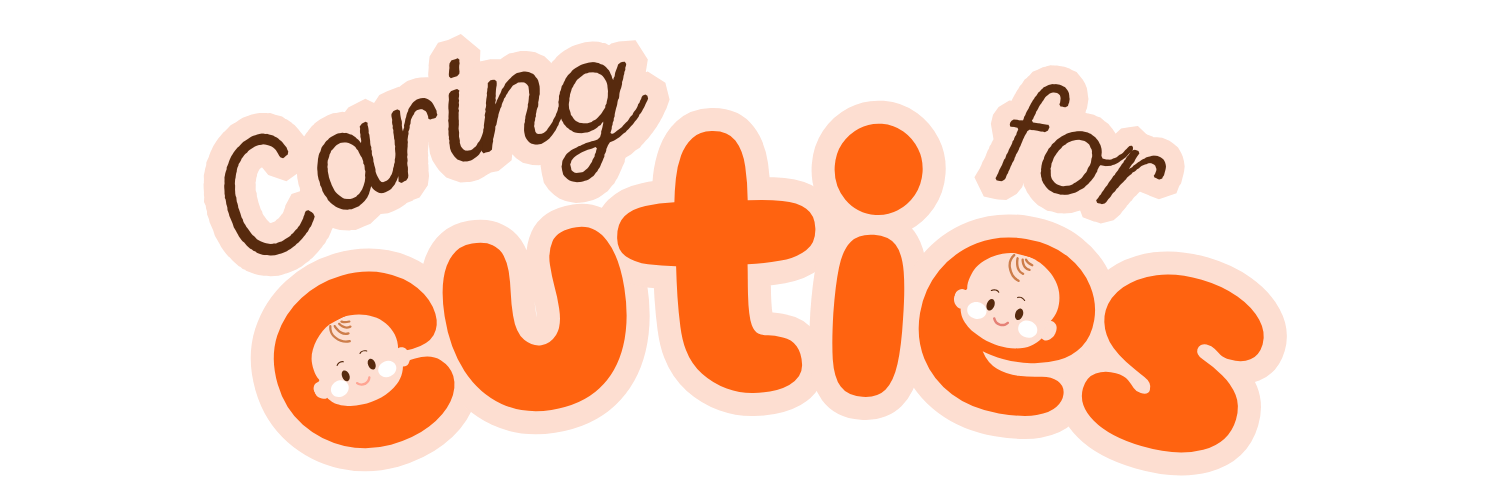Are you expecting a baby and wondering how pregnancy will affect your dental health? Pregnancy and dental health are closely linked. Understanding this connection is key for good oral health during pregnancy. As your body changes, your oral health may also change, making prenatal oral care very important.

Pregnancy can change your oral health in many ways. Hormonal changes and eating habits can impact your teeth and gums. This guide will help you understand how pregnancy affects dental health. It will give you tips for taking care of your teeth during this time.
Key Takeaways
- Understanding the link between pregnancy and dental health is key for good oral health.
- Prenatal oral care is essential to prevent oral health issues during pregnancy.
- Hormonal changes during pregnancy can affect oral health.
- Regular dental check-ups are vital for monitoring oral health during pregnancy.
- Good oral health during pregnancy can positively impact the health of both mother and baby.
- By prioritizing prenatal oral care, expectant mothers can reduce the risk of oral health issues during pregnancy.
Understanding Pregnancy and Dental Health
Pregnancy brings big changes in hormones, which can mess with your teeth and gums. The rise in estrogen and progesterone makes gums more likely to get inflamed and infected. That’s why dental treatment while pregnant is key to keeping your mouth healthy.
Pregnancy can bring on pregnancy gingivitis, a mild gum disease. Keeping your teeth clean and visiting the dentist often can stop this. Safe dental procedures during pregnancy help keep your mouth healthy and avoid problems.
Dental care during pregnancy is not only safe but also very important. Some myths about dental care during pregnancy can be confusing. Knowing the truth helps expectant mothers make smart choices for their teeth and overall health.
Hormonal Changes and Oral Health
Hormonal shifts in pregnancy can harm your gums and teeth. The rise in estrogen and progesterone boosts blood flow to your gums. This makes them more sensitive and prone to swelling.
Why Dental Care Matters During Pregnancy
Dental care is vital during pregnancy to keep your mouth healthy and avoid problems. Regular dental visits and good oral hygiene can prevent pregnancy gingivitis and keep your smile bright.
Pregnancy-Related Dental Changes You Should Know
During pregnancy, women may notice dental changes. These can include increased sensitivity and changes in gum shape. Regular dental exams during pregnancy help spot issues early. Following pregnancy oral hygiene tips can prevent problems.
Some common dental changes during pregnancy are:
- Increased sensitivity
- Changes in the shape of the gums
- Gingivitis
- Tooth erosion
Keeping good oral hygiene is key to prevent these changes from getting worse.
By getting dental exams during pregnancy and following pregnancy oral hygiene tips, expectant mothers can keep their teeth healthy. This means brushing teeth often, flossing every day, and using fluoride mouthwash.
By being proactive about oral health, pregnant women can lower the risk of dental issues. This ensures they have a healthy smile for years to come.
| Dental Change | Description |
|---|---|
| Increased Sensitivity | Tooth sensitivity may increase during pregnancy due to hormonal changes. |
| Changes in Gum Shape | The shape of the gums may change during pregnancy, leading to gingivitis or other gum problems. |
The Link Between Pregnancy Hormones and Gum Disease
Pregnancy hormones can affect dental health, raising the risk of pregnancy gingivitis. This condition causes gum inflammation and infection. It’s important to know the signs and symptoms to get treatment early.
Regular dental visits and safe procedures can prevent and manage pregnancy gingivitis. Expectant mothers should focus on dental health. This includes brushing, flossing, and watching what they eat.
Understanding Pregnancy Gingivitis
Pregnancy gingivitis is common in expectant mothers. Hormonal changes can cause gum inflammation and infection. Look out for these signs:
- Redness and swelling of the gums
- Bleeding of the gums, during brushing or flossing
- Tenderness or sensitivity of the gums
- Bad breath or a bad taste in the mouth
Prevention Strategies
To avoid pregnancy gingivitis, follow these steps:
By focusing on dental health, expectant mothers can keep their mouths healthy. Regular dental visits and safe procedures are key to preventing pregnancy gingivitis.
| Pregnancy Trimester | Dental Health Recommendations |
|---|---|
| First Trimester | Schedule a dental check-up to assess oral health and identify any issues |
| Second Trimester | Keep up with regular dental check-ups and good oral hygiene |
| Third Trimester | Avoid dental procedures that could risk the mother or fetus, unless really needed |
Safe Dental Procedures During Pregnancy
Expectant mothers often worry about dental procedures during pregnancy. But, many dental treatments are safe and important for oral health. Safe dental procedures during pregnancy help prevent problems and keep a healthy smile for mom and baby.
Common dental treatment while pregnant includes cleanings, fillings, and crowns. These can be safely done during pregnancy. It’s key to talk to your dentist about any worries. A healthy smile is vital for both the mother’s health and the baby’s growth.
Here are some important things to know about safe dental procedures during pregnancy:
- Routine cleanings and exams are essential for good oral health
- Fillings and crowns can be safely performed during pregnancy
- Emergency dental procedures, such as root canals, may be necessary to prevent complications
Understanding which dental procedures are safe during pregnancy helps expectant mothers make good choices. It’s important to talk to a dentist to find the best treatment. This ensures a healthy smile for both mom and baby.
| Dental Procedure | Safety During Pregnancy |
|---|---|
| Routine Cleanings | Safe |
| Fillings | Safe |
| Crowns | Safe |
| Root Canals | Safe in emergency situations |
Essential Oral Hygiene Tips for Expectant Mothers
During pregnancy, keeping your mouth clean is key. It helps avoid health issues for both mom and baby. Brushing teeth twice a day and flossing once a day is a must. This removes food bits stuck between teeth.
Choose dental products that are safe for pregnant women. Pregnancy oral hygiene tips recommend soft-bristled toothbrushes and gentle mouthwashes. A diet rich in fruits, veggies, and whole grains also supports oral health.
Daily Dental Care Routine
- Brush teeth at least twice a day with a fluoride toothpaste
- Floss once a day to remove any food particles
- Use a soft-bristled toothbrush and a gentle mouthwash
Recommended Dental Products
Look for dental products with the American Dental Association (ADA) Seal of Acceptance. This means they’re safe and effective. Dental health for expectant mothers is very important. Using the right products can prevent oral health issues.
Diet and Nutrition for Dental Health
Eating well is vital for oral health. A diet full of fruits, veggies, and whole grains helps. Prenatal oral care is critical. Expectant mothers should choose their diet wisely for the best oral health.
When to Schedule Dental Visits While Pregnant
Regular dental exams during pregnancy are key for good oral health. Expectant mothers should see a dentist in the first trimester and again in the second. This helps catch and fix any problems early.
Good prenatal oral care stops pregnancy complications. Regular dental visits prevent gum disease and other issues. These can harm your health and your baby’s.

- Schedule dental visits during the first and second trimesters
- Practice good oral hygiene, including brushing and flossing regularly
- Avoid sugary and acidic foods that can contribute to tooth decay
Follow these tips and get regular dental exams during pregnancy. This way, expectant mothers can have a healthy pregnancy and a healthy baby.
Managing Common Dental Problems in Pregnancy
During pregnancy, women may face dental issues like tooth erosion from morning sickness. They might also deal with pregnancy tumors and tooth sensitivity. It’s important to understand these problems and how to manage them. Regular dental treatment while pregnant helps prevent and treat these issues.
Good oral hygiene is key to managing dental problems. Use a soft-bristled toothbrush and fluoride toothpaste. Also, avoid foods and drinks that can make pregnancy gingivitis worse. Here are some tips for good oral health during pregnancy:
- Brush teeth at least twice a day with a fluoride toothpaste
- Visit the dentist for regular check-ups and safe dental procedures during pregnancy
- Avoid sugary and acidic foods and drinks
By following these tips, expectant mothers can lower the risk of dental problems. They can keep their smile healthy throughout their pregnancy. It’s also important to know the signs of dental problems like tooth sensitivity and pregnancy tumors. Seek dental treatment while pregnant if you notice any issues.
A healthy smile is part of a healthy pregnancy. By focusing on oral health and getting regular safe dental procedures during pregnancy, expectant mothers can ensure a good outcome for themselves and their baby.
| Dental Problem | Symptoms | Treatment |
|---|---|---|
| Tooth Erosion | Morning sickness, tooth sensitivity | Fluoride toothpaste, regular dental check-ups |
| Pregnancy Tumors | Bleeding gums, swollen gums | Dental cleaning, removal of tumor if necessary |
| Tooth Sensitivity | Pain when eating hot or cold foods | Desensitizing toothpaste, regular dental check-ups |
Medications and Dental Treatment Safety
Expectant mothers often worry about the safety of medications and dental treatments during pregnancy. It’s important to know which medications are safe and how they affect oral health. This knowledge helps make informed decisions about dental care. Dental health for expectant mothers is key, and the right medications can prevent complications.
Many medications are safe for safe dental procedures during pregnancy. But, it’s vital to talk to a dentist or healthcare provider before taking any medication. Common medications include pain relievers and antibiotics. Here are some important points to consider:
- Pain relievers: Acetaminophen is usually safe during pregnancy. But, ibuprofen and aspirin should be used carefully.
- Antibiotics: Penicillin and amoxicillin are often used during pregnancy. It’s important to follow the dosage and duration as prescribed.
- Anesthetics: Local anesthetics, like lidocaine, are generally safe. But, tell your dentist about your pregnancy before getting any anesthetic.
Some medications can harm oral health. For example, some can cause dry mouth. This increases the risk of tooth decay and other oral health problems.

| Medication | Safety During Pregnancy |
|---|---|
| Acetaminophen | Generally considered safe |
| Ibuprofen | Use with caution |
| Penicillin | Commonly used during pregnancy |
Understanding the safety of medications and dental treatments during pregnancy is key. Expectant mothers can maintain good dental health for expectant mothers and have a healthy pregnancy. Always talk to a dentist or healthcare provider before taking any medication or dental treatment during pregnancy. This ensures safe dental procedures during pregnancy.
Recap
Pregnancy and dental health are closely linked, making prenatal oral care essential for expectant mothers. Hormonal changes during pregnancy can lead to issues like pregnancy gingivitis, emphasizing the importance of regular dental check-ups and good oral hygiene practices. By prioritizing dental health, mothers can positively impact their own well-being and that of their baby.
Conclusion: Maintaining Optimal Dental Health Throughout Your Pregnancy
Keeping your teeth healthy is very important when you’re expecting a baby. Knowing how your mouth changes during pregnancy helps a lot. By brushing and flossing right, and going to the dentist often, you can avoid problems.
Good dental care is essential for a healthy pregnancy. Regular dental visits and daily care help keep your teeth strong. This way, you can avoid gum disease and tooth decay, keeping you and your baby healthy.
FAQ
What happens to your dental health during pregnancy?
Pregnancy brings big changes in hormones, affecting your mouth. Hormones like estrogen and progesterone can make gums swell and get infected. Keeping your teeth clean is key to avoid problems.
Why is dental care important during pregnancy?
Dental care is vital during pregnancy to keep your mouth healthy. Hormonal changes can cause gum disease and tooth sensitivity. Regular dental visits and good oral hygiene can prevent these issues.
What are some common misconceptions about dental care during pregnancy?
Many think dental work is risky during pregnancy. But, most cleanings, fillings, and crowns are safe. Always talk to a dentist about your dental needs.
What is pregnancy gingivitis, and how can it be prevented?
Pregnancy gingivitis is common in expectant mothers. Hormonal changes can cause gum inflammation. To prevent it, brush, floss, and use dental products as recommended. Early treatment can also help.
What are some safe dental procedures that can be performed during pregnancy?
Many dental procedures, like cleanings and fillings, are safe during pregnancy. Always check with a dentist about your dental needs. They can plan your care to keep you safe and healthy.
What are some essential oral hygiene tips for expectant mothers?
Expectant mothers should brush and floss daily with safe products. Eating well and visiting the dentist regularly are also key. This helps keep your mouth healthy.
When should expectant mothers schedule dental visits during pregnancy?
Expectant mothers should see a dentist in the first and second trimesters. Regular visits help catch and treat problems early, keeping your mouth healthy.
How can expectant mothers manage common dental problems during pregnancy?
Women may face dental issues like tooth erosion and sensitivity during pregnancy. Use a soft toothbrush and fluoride toothpaste. Avoid harmful foods and drinks, and see a dentist for help.
Are there any medications or dental treatments that are unsafe during pregnancy?
Expectant mothers may worry about dental treatments and medications. Always talk to a dentist or healthcare provider about safety. Many treatments are safe, but it’s best to check.





